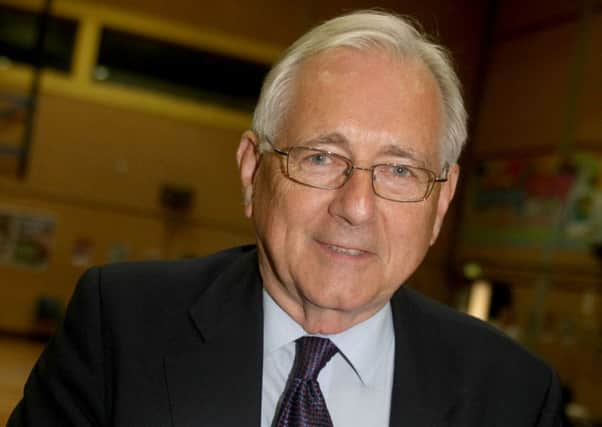SIR PETER BOTTOMLEY: Lessons at home, school and by media


Others may think differently; my views about growing up are that most of us survive most of what live brings to us, whatever the difficulties.
Warning: this is not going to be very exciting or controversial.
Advertisement
Hide AdAdvertisement
Hide AdSecond declaration: I was not good when learning or teaching about much that follows.
It is too easy to blame the parents or the schools for one thing or another.
It is too easy to assume that anything we may find embarrassing is the responsibility of another organisation to fulfil or to tackle.
When addressing a school prize day gathering or giving a pulpit talk at a college leavers’ service, I have said to the parents present that when their children do something that they themselves had at the same age, they need not worry more than when they had done it themselves.
Advertisement
Hide AdAdvertisement
Hide AdI then may say to the young people that they have my permission to ask their great aunts or their grandparents when their parents had ever been instantly and continuously obedient to their own parents.
The last point rightly is in praise of teachers; it also allows me to sit down with a round of applause after a speech that had lasted less than two minutes.
There was never a complaint about the quantity.
I say that we agree that with the help of the administrative staff, the cooks and cleaners and the maintenance crafts, it is the teachers who make the place what it is.
I say that when they have completed their own education they should, if good enough and with the right dedication, consider applying to be a teacher.
Advertisement
Hide AdAdvertisement
Hide AdAsking everyone to join me in clapping their teachers, I stop.
We cannot stop when considering the landmark report in January by the Royal College of Paediatric and Child Health on child physical and mental health.
The ‘State of Child Health’ report includes data on 25 measures relating to the health and wellbeing of UK children, from obesity and drug/alcohol use to sexual health and suicide rates.
While highlighting improvements in many respects over the past 30 years, the reports suggests reasons for significant concern, including the relatively poor health of those from deprived backgrounds and those with lack of access to support.
Advertisement
Hide AdAdvertisement
Hide AdHow can we all foster social and emotional health and wellbeing through building resilience and specifically tackling issues around social inclusion, bullying, drug and alcohol use, and mental health?
Personal Social Health and Economic Education (PHSE) is mentioned specifically in relation to how it could help to reduce drug and alcohol use and to support mental health as a vital part of a whole school approach.
If one sentence matters more than all the others, it is this.
Children consulted for the report suggested that one-off lessons on such issues were not enough.
Advertisement
Hide AdAdvertisement
Hide AdWhen I served as a vice president of the British Youth Council, I praised their previous report on the absence or the inadequacies of what can be described as, or noted as the absence of sex education.
It would be interesting to hear the views of the local schools, councils and county youth groups.
I ask that every school or college is given support by parents; that parents feel able to discuss openly with concerned teachers how they can together give young people the best start in life.
The aim should be that the generations that follow us make fewer of the mistakes we made, that they are better able to ask for help and to give help to their own generation, and that overall their health and wellbeing improves, in part because we have got over our own embarrassment about realising the obvious point that the only thing we do not inherit from our parents is celibacy.
---
Advertisement
Hide AdAdvertisement
Hide AdDon’t miss out on all the latest breaking news where you live.
Here are four ways you can be sure you’ll be amongst the first to know what’s going on.
1) Make our website your homepage
2) Like our Facebook page
3) Follow us on Twitter
4) Register with us by clicking on ‘sign in’ (top right corner). You can then receive our daily newsletter AND add your point of view to stories that you read here.
And do share with your family and friends - so they don’t miss out!
Always the first with your local news.
Be part of it.